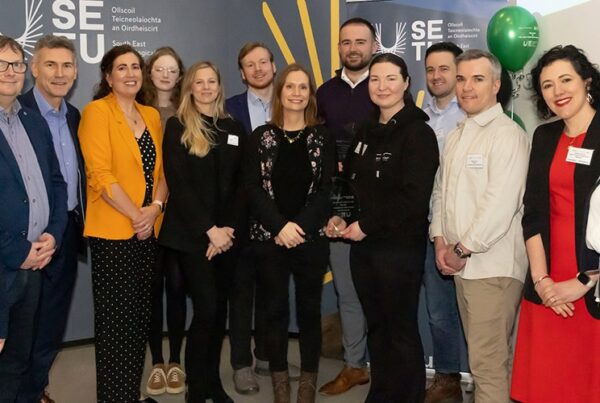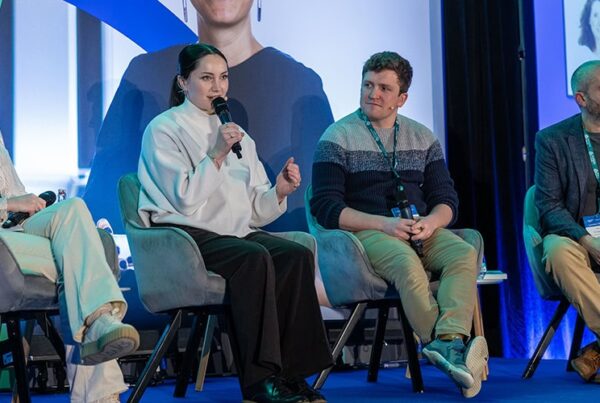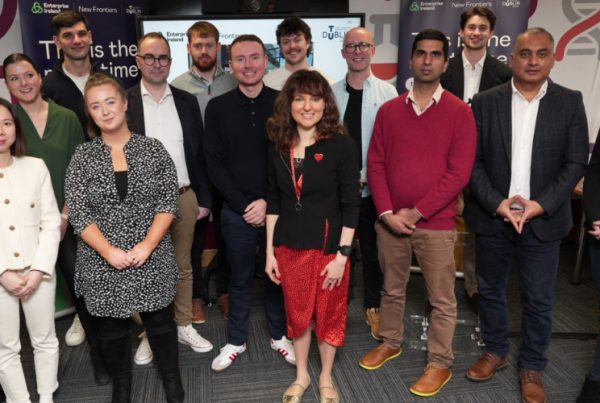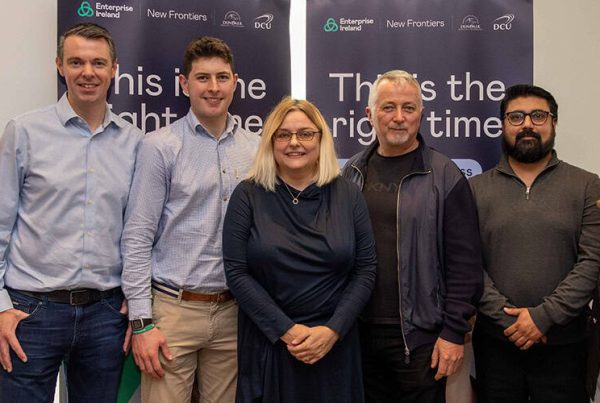
While there are various traits that can help to equip a startup founder, there is no magic formula or template. I’ve met lots and lots of founders over the years, including people of all personalities, backgrounds, shapes, sizes, ages, etc. There have been lots of great people whose ventures haven’t worked out; and a few dark horses along the way who have entirely flipped any initially negative impressions.
I have worked closely with startups since 2000, most recently as Enterprise Manager at IADT, where I managed the New Frontiers programme and the Media Cube Incubation Centre. Previous roles spanned stints of employment and self-employment, working with organisations like InterTradeIreland, Local Enterprise Offices, County Partnerships, DIT, Enterprise Northern Ireland and various consultancy practices.
The common theme throughout my career has been a high degree of involvement with entrepreneurs taking the step to launch their own venture. I believe there is no better place to work than among a bunch of people who are motivated enough to take that courageous step! So, from my 16 years’ experience working with startups, these are the key characteristics of successful start-up founders that I have identified:
N.B. This is an entirely unscientific glance at a few traits that, for me, have shone through!
Surfing the waves of uncertainty
The only thing that is certain in the early stages of a start-up is that nothing is certain. The reality is that there is an endless range of unknowns for any founder launching their own venture. As Dave McClure, Founder of 500 Start-Ups, says:
A start-up is a company that is confused about (1) what its product is, (2) who its customers are, and (3) how to make money.
In my experience, it’s a minimum requirement for any founder to be able to live with the high degree of flux that marks the early days, months and years (yes, years!) of any start-up; otherwise, there’s likely to be a few too many sleepless nights. In fact, the best entrepreneurs seem to surf the waves of uncertainty.
Deliberate learners
Those who have ‘been there, done that’ (be it successfully or not so successfully) will often say that launching a start-up was the greatest learning experience of their lives. Some of the best founders I have worked with aren’t just happy to embrace the uncertainty referred to earlier, they either have or very quickly develop a very sharp sense of what they know and what they don’t know (but need to know). They then proactively set out to figure out some of the unknowns, reflect on the outcome and adapt their next steps accordingly. Deliberately learning every step of the way.
Glass half-full
All sorts of academic studies over the years have identified optimism as a key trait of successful entrepreneurs and there’s no doubt that it helps hugely to have a ‘glass half-full’ outlook on things. Indeed, the expression fits perfectly here, as it suggests an outlook which is on the positive side of neutral, without veering towards unbridled optimism or delusional confidence. I’m often struck by how a lot of founders will find silver linings in circumstances which might see others running for the hills. I’ve admired founders ‘positivise’ their way out of messes like lawsuits for patent infringement, the loss of a key customer or bust-ups with co-founders or investors.
Lone rangers?
Are they bold pioneers, happy to strut off into the unknown and tackle whatever obstacles arise? I’ll happily fudge the answer to this one. Yes, a lot of the successful entrepreneurs I’ve encountered are very capable people who believe in their own capacity to figure things out and often achieve remarkable amounts in the early stages. That said, anyone with their eye on genuine scale knows that they need good people around them – both as co-founders/key hires and within a wider network of ‘brains they can pick’. Finding the right people as co-founders/key hires or simply as ‘good people to know’ demands some degree of networking skill and effort. That’s quite different from rocking up at every start-up gig in town; it’s more about proactively and discerningly building a web of people who might be able to help you. Needless to say (I hope), that involves returning the favour!
Charmers?
Closely linked to the previous point, are all the guys and girls bursting with charisma? No, most certainly not. I have often observed how some participants on start-up programmes will determinedly slog away on their own for years, while others manage to develop whole teams of people who seem happy to come on board and work for free. Similarly, strong founders can keep customers and investors on their side, even when products aren’t working and timescales are slipping. It’s not unbridled charisma that makes the difference; in fact, being too ‘salesy’ is often unhelpful. Instead, having a passion for the project, communicating that effectively and being great to work with are all much more important.
Clever clogs?
Most definitely – but not at all in the sense of academic achievement or brilliance. While being a ‘genius’ is undoubtedly helpful when working on projects based on hi-tech or deep science, being ‘savvy’, ‘sharp’ and ‘on the ball’ will carry you much further along the start-up road than being highly intelligent in the conventional sense of the term.
When talking recently to a bunch of founders who have successfully scaled their start-ups, they all agreed that its people (staff, investors, customers) rather than technology or markets that consume the bulk of their effort and time. In that context, emotional intelligence is possibly the most valuable form of intelligence!
Marathon runners?
Yes, a start-up will take 150% of your energy and commitment, most likely over a distance more akin to a marathon than a sprint. I’ve often been struck by how some of the strongest founders have ‘something else’ which helps keep things in balance, be it sporting endeavours, a passion or past-time entirely unrelated to their business activity, and/or a good helping of time with their family. These will all help you find some clarity amid the sometimes ‘foggy’ and extraordinarily busy journey that is being a start-up entrepreneur. Bear in mind that nothing merits more investment than your well-being and that of your nearest and dearest!
About the author
 Dominic Mullan
Dominic Mullan
Dominic Mullan is a former New Frontiers Programme Manager at the Institute of Art, Design & Technology (IADT) Dún Laoghaire, where he was the Innovation, Commercialisation & Development Manager.
Dominic has extensive experience supporting the creation and growth of enterprises, with a particular focus on the innovation and technology space. He has worked closely with startups since 2000, and his expertise spans both the public and private sectors.
Recent articles

Founders Graduate From New Frontiers At South East Technological University – Carlow Campus

The New Frontiers Programme Connects 158 Founders With Success Stories

Raise Your Startup’s Visibility & Credibility By Entering These Competitions

Founder Perspectives: Lessons From Building Businesses In Sustainability

Tech Startups In The Age Of AI: Alumnus Paul Savage On Speed, Quality & Risk

Fourteen Startup Founders Graduate From Phase 2 Of New Frontiers In Tallaght

Eleven Founders Graduate From New Frontiers In The Border Mid-East Region

 Dominic Mullan
Dominic Mullan
